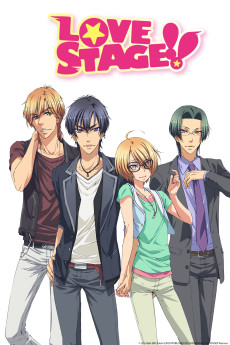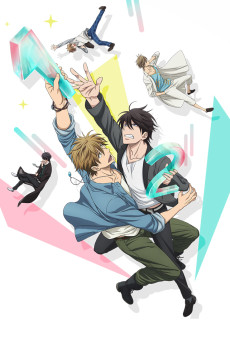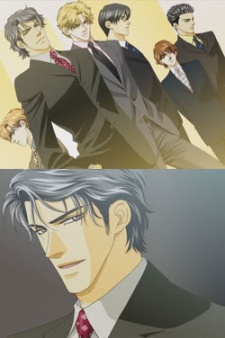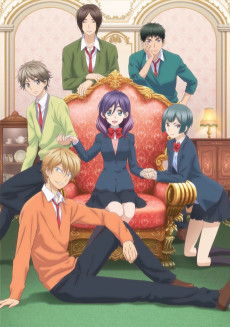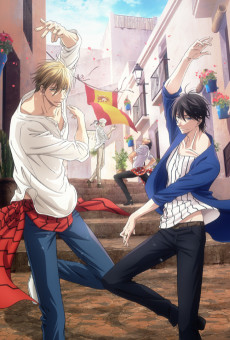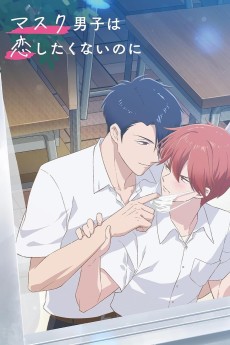LOVE STAGE!!
STATUS
COMPLETE
EPISODES
10
RELEASE
September 11, 2014
LENGTH
23 min
DESCRIPTION
Though his family is packed with famous celebrities, Izumi Sena is just your average guy. Currently a college student, he's a huge otaku with aspirations of becoming a manga creator. But one day he gets roped into filming a TV commercial and meets hot young actor Ryoma Ichijo. Not only does Ryoma remember Sena from a commercial they were in together as children, but he’s also been carrying a torch all these years for the girl he thinks starred opposite him! What will he do when he finds out she is really a he?
(Source: SuBLime Manga)
CAST
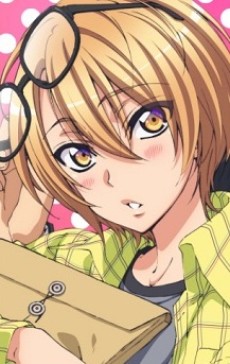
Izumi Sena
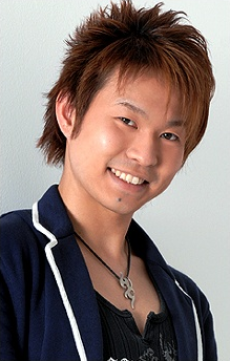
Tsubasa Yonaga
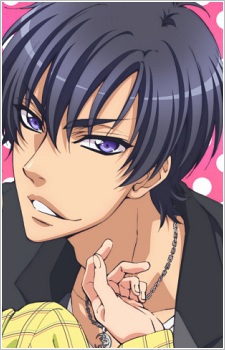
Ryouma Ichijou
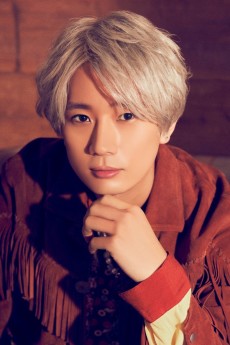
Takuya Eguchi
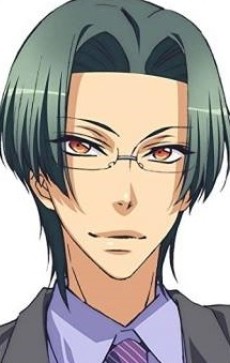
Rei Sagara
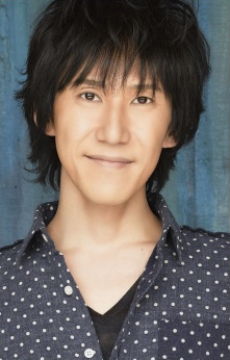
Daisuke Hirakawa

Shougo Sena
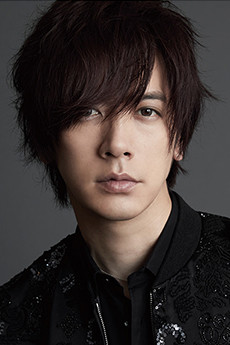
Daigo Naito
EPISODES
Dubbed
RELATED TO LOVE STAGE!!
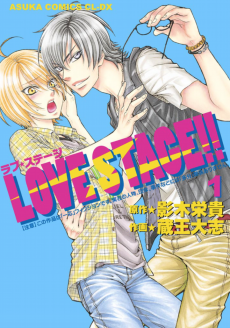 MANGA ComedyLOVE STAGE!!
MANGA ComedyLOVE STAGE!!REVIEWS

TheRealKyuubey
80/100This show is hilarious.Continue on AniListThe teenage years are often referred to as the best years of your life, but they can come with their own set of challenges… It’s the time of life where you’re still finding out who you are, who you want to be, and what’s important to you. Even as late as the crucial age of 18, it can be difficult to find your place in the world, especially if you’re struggling to find the place where you belong. This is even worse for Sena Izumi, because in addition to his more normal adolescent woes, he’s the youngest member of an entire family of entertainers and celebrities… His sly father is a stage actor, his spoiled mother is a model/actress, his doting brother is the lead singer of a popular rock band, his family has it’s own talent manager… And he wants to be a manga artist. Naturally, this has caused a bit of friction in the family, as the excitable and outgoing Sena family is beginning to seriously worry about their youngest son, who’s locked himself in his room like a hermit and dedicated his life to a passion that they believe he has no talent for the field that he dreams of finding success in, and they’ve decided to do whatever it takes to get him out of his introverted shell.
Fortunately for them, an opportunity to do so has just presented itself. When Izumi was only eight years old, he was dressed up like a girl for a wedding scene in a commercial, and the company wants to do an anniversary commercial… A sequel, where the children from the original classic have grown up and are marrying themselves. After some creative persuasion from his brother, Izumi agrees to don the drag dress one more time, but little does he know that his walk down the aisle is leading him into the arms of destiny. His costar, the now famous Ryoma Ichijou, has been in love with him since the first commercial, and this isn’t just imprinting… The sight of her face has gotten him through ten long years of hardship in the entertainment industry, and it was HIS idea to get the original cast back so he could finally make his dreams of seeing her again come true. Will his discovery of his bride’s true gender bring his longing to a grinding halt, or has he come too far to turn back now? And what kind of effect will getting caught up in all of this have on Sena’s routine lifestyle? They may only be married in fiction, but the red string of fate is all too real.
Love Stage comes to us from JC Staff, who I believe I’ve said before has no real consistency in it’s visual presentation. It goes all over the place in terms of quality, but out of the three general camps that I mentioned in my Kill Me Baby review, I’d say Love Stage fits nicely into Camp 3. This is, once again, the camp where anime has a modest budget, there’s no real room for excess, and they do whatever they can to make the show look as good as possible without putting themselves into a compromising financial situation. Much like other shows in this camp, Love Stage never really goes out of it’s way to impress you with it’s animation, but it still looks fucking great. The characters use very simple movements whenever motion is needed, and it never tries to do more than it needs to, while at the same time never feeling like it’s skimping. There are budget saving tricks at play, but the producers were clever enough to make sure it all felt like part of the visual style and tone of the series, which they succeeded at.
And speaking of the visual style, this is a very beautiful show just in terms of it’s art alone. For about 90 percent of the series, the color palette is bright, warm and welcoming, almost like it knew how intense it’s kind of subject matter could be, and was designed to put viewers at ease right from the early stages. The other ten percent of the time, when the show does get a bit darker, what with the characters dealing with issues and internal turmoil, the palette changes to reflect this, but it’s never for long. The level of detail is also stunning, with it’s depiction every little crack in a shattered marble only being the tip of the iceberg. Just about everything in the background is shown with intricate detail aside from the people, who are drawn as colorless silhouettes, and while I’d normally rag on a show for this… RWBY season 1, how ya doing… The fact that it only really happens when a character is busy with internal monologues does make it feel like an accurate portrayal of their distracted mindset.
While I’m not a fan of shiny white halos surrounding a character’s hair… I’ve bitched about it before, and sorry, but I’m not cool with it here either… The character designs are otherwise very attractive and tell us a lot about the characters as people. Ryouma and Izumi in particular were designed to fall right in the middle of masculinity and femininity, as they’re obviously coded male, but they still have the big moe eyes, slender bodies and feathery hair that’s just long enough to frame their faces, and the details that would normally code a character as seme or uke are more than just there, they’re ingrained into their personalities. Izumi’s eyes in particular are multi-colored, mostly amber but touched by a subtle swirl of blue at the tops, giving them a mysterious quality that you can understand someone getting entranced by. The other characters in the cast are fairly generic in design, but it doesn‘t really hurt anything, as their looks do inform their personalities. I do feel that the blushing artwork is a little too over-pronounced, but that’s a minor issue.
The music is a bit on the generic side, but it’s not bad or anything. I didn’t find any of it to be repetitive or annoying, like in a lot of shows I’ve seen. The character songs are a lot more interesting, with LalaLulu’s song being a delightful parody of the Magical girl genre, and Izumi’s brother Shougo has a really cool song called Love or Die, and yeah, I can see why the band Crusherz became famous. The opening, Lovest by Screen Mode, is awesome. Not only is the song catchy, upbeat and fun to listen to, but the video is just as fun and fits every beat perfectly. The constantly changing visuals are simple enough to grasp what they’re showing you in the time they have, and they match the energy and tone of the show. Surprisingly, the ending theme is more of the same, a catchy song with visuals that are pleasing to the eyes and match the beat of the song, and while most of it features posed characters, there’s an actual burst of expensive animation towards the end. I can’t remember another show where I watched all the way through the opening and closing as often as I did with this one.
There’s no dub, and I’m not a good judge of Japanese acting, but I’d just like to point out that if there’s ever a dub for this show, I hope they cast Chris Patton as Ryouma and Greg Ayres as Izumi. Moving along.
Okay, let’s just rip this band-aid off right now… Love Stage is a yaoi. It’s not a shonen-ai, oh no, it’s a full on yaoi. I’ve never reviewed a yaoi before, but that doesn’t mean I haven’t seen any. While I’m no expert on the genre, I have dabbled a bit, and unfortunately, what I’ve seen prior to Love Stage wasn’t all that impressive. I read the first few volumes of Loveless, I saw the first four episodes of Gravitation, I’ve seen the movie Fake, and while it’s more subtextual than anything else, I sat through the first season of Black Butler. In short, my exposure to the medium has revealed it to be a minefield of problematic situations and over-all just shitty story-telling, relying way too heavily on love at first sight, people turning queer out of nowhere on a dime because the plot demanded it, romanticized sexual assault, writers who forgo necessary information and development because seem to just want to get to the action already, and way too many couples where the age differences lay on different sides of the law. I’ve been told by people far more versed in the genre than I am that most if not all of these observations are persistent from title to title.
Now, does that mean there are no good Boys Love material out there? No, not necessarily. I plan to watch Yuri on Ice and Nabari no Ou in the future, and I’ve even seen some shows that I thought would have actually been improved if the main male characters went gay for each other… Kids on the Slope, for example. But alas, thank the LGBT gods, there is at least one good yaoi anime out there. I’ve already praised the art and animation from this show up and down the wall, but the number of problems and genre cliches Love Stage avoids, subverts, or just has fun with is insane. Now keep in mind, I’m not saying it’s an accurate portrayal of homosexual people or homosexual couples, and I’m not saying it presents it’s gay characters as realistic people or that it exists for reasons outside of tickling the libidoes of ravenous fujoshi, but that doesn’t mean it can’t be good. Yeah, I made a big deal about figuring out whether or not Strawberry Panic was faithful to it’s subject, but that show was garbage and needed the extra point. Love Stage doesn’t have that problem.
Right off the bat, we’re introduced to the main character, Sena Izumi, the uke of the situation. Oh, but we find out much more than that about him. After making sweet promises to us in the form of it’s animation, Love Stage wastes no time establishing Izumi’s character. We find out who he is, what he wants from life, what his family’s like, what his backstory was like, what his issue is, several possible resolutions to it, basically everything you need to know about him, and this is expressed without a lick of unnatural dialogue or exposition, and even better, we learn all of this before the first kiss is even taken. We don’t learn quite as much about his seme Ryouma until much later, but we know about their shared history, and through his actions revolving around his interactions with Izumi and his coworkers, we do learn enough about him to not have any lingering questions about him that really need to be answered. I can’t say they feel like people I’d meet out there in the real world, but they still feel like fully developed and fleshed out characters.
They also both have personalities that tie directly into their seme/uke coding, with Izumi being childish and submissive, but still driven by his own interests and possessing a decent level of propriety and agency. Ryouma is tall, dark and mysterious, quick to anger and somewhat closed off, but still struggling with the conflicting feelings inside of him and trying his best to control the parts of himself he doesn’t quite understand yet. While it takes them a while to work out their personal hang-ups and finally come together, they do make a really likeable couple. I also really liked the Izumi family, as viciously manipulative and backstabbing as they can be, and in the most delicious sort of way. Shougo, Izumi’s older brother, dotes on him and gets clingy to the point that he honestly can be a little creepy at times, but he still has plenty of moments where he redeems himself by showing a genuine concern and protecting him. We don’t see much of Izumi’s parents, but despite Dad acting like he knows best and Mom acting self-centered, they both clearly love their children.
Perhaps the most nuanced character is the family’s manager, Rei, a cold and calculating character who’s not above pulling the strings whenever necessary, selling people out to family obligations and looking for every possible advantage in his day-to-day dealings, but he still cares enough about his employers that he’ll set aside all of his business concerns if it feels like the right thing to do. Izumi’s manga club, only one of whom kind of registers his presence, is designed so that he’ll look out of place there, not that he ever notices. Similarly, the fictional character of Lala-Lulu, his fantasy Waifu idol, is so far removed from bearing any resemblance to actual girls that it’s not hard to see how disingenuine his attraction to the fairer sex really is. A few of the characters can get annoying at times, the fat otaku feel like an unjust stereotype, and I’m pretty sure I’d have a gripe with Izumi’s parents if they were given more to do, but over-all, I really liked all of these characters. I’ll admit that Ryouma does test me a little, but that just leads me to a few other cliches.
First of all, there’s the love at first sight cliche, which Ryouma falls neatly into. He’s been in love with a certain girl since they were 8, and while that would normally earn an eyeroll at best from me, the fact that his love for her carried him through the entertainment industry… A field of work where you NEED to hold onto some form of innocence to survive, let alone succeed… I can give it a pass. Plus, with Izumi turning out to be a guy, and Ryouma being unable to shake the feeling anyway, it does feel like Love Stage is having fun with this cliche, rather than using it straightforwardly. Ryouma’s feelings are portrayed as crazy, but not the stalker kind of crazy… The romantic kind, where you know your love for someone makes no sense, and is totally out of left field, but you’ll still stay true to who you are and who you love, the world be damned if it stands in the way. This is probably the best usage of love at first sight that I’ve seen in an anime, let alone in a yaoi, but unfortunately, Ryouma falls into other cliches that are much harder to forgive.
A constant occurrence in yaoi is rape. It may not be carried all the way through, but it’s there, from gay characters in non-yaoi shows that speak in exaggerated falsetto and frequently make unwelcome advances on straight characters, to attempted rape that’s played for laughs, to actual rape that’s romanticized and sparks a new level of romance as a result. And yes, there is a point where this show gets… Rapey. I won’t tell you exactly what happens, or the reason that it happens, but three episodes in, Ryouma does something, and he winds up losing control of himself and coming within a hair’s breadth of doing something he’d never be able to take back, before he’s interrupted and the unforgivable thing is just barely prevented, but here’s where Love Stage takes a major step away from the worst of it’s genre… What he does is explicitly considered to be a bad thing. The writers don’t try to sweep it under the rug, oh no, it’s painted exactly the way it should be, and it’s this turning point that really got me invested in this pairing.
After the… thing… Ryouma feels genuine remorse, and he has to apologize and earn Izumi’s trust back before he can even THINK about pursuing a relationship. He’s accepted his feelings by this point, but Izumi is a much harder sell, and even though he buries the hatchet with him… Mostly out of pity… It isn’t until Ryouma proves his devotion by getting involved with Izumi’s lifelong passion, helping him along towards his goal, and doing everything in his power to encourage him and build him back up when things don’t go the way he wanted. He slips back into problematic territory when he kisses Izumi a bunch of times in his sleep… I mean, come on, seriously? But he earns those points back when he refuses a carnal offer that he can tell Izumi doesn’t really mean. I won’t say whether or not these two wind up together in the end, but… Isn’t that alone a breath of fresh air? The fact that you can’t tell? Yeah, they have numerous encounters, both as friends and as romantic prospects, but the outcome of their time together is just as engaging as the journey there.
Love Stage is available from Sentai Filmworks. The original manga by Eiki Eiki is available from SuBLime. The original light novel is not available stateside, but the series can also be viewed on Crunchyroll. There’s an OVA episode on the DVD that I highly recommend, and as for what it’s about, let’s just say it’s more of Ryouma being a pain in the ass.
Now, after all the time I’ve spent talking about how good this title is compared to other titles in the Boys’ Love genre, and how it deconstructs and subverts a bunch of troublesome tropes, the reaction I’m probably getting from most readers is… So what? Even if it’s a good yaoi, it’s still a yaoi, and most of the anime fanbase will have no interest in that kind of content. Well, there is one thing about Love Stage that I feel gives it a more universal appeal: This show is fucking hilarious. I was hooked right from the first time that Shougo manipulated Izumi with Lala Lulu merchandise, and Ryouma’s reaction to Izumi’s gender reveal was just icing on the cake. It’s visual style works extremely well with it’s comedic timing, which follows a healthy combination of gag and character-based jokes, most of which hit their mark. It was almost enough for me to forgive some of the more problematic scenes, including Ryouma’s missteps and an attempted gang-bang towards the end that came right the fuck out of nowhere. It’s a yaoi, so it’s going to be a mixed bag, but it’s a bag I won’t mind reaching into a few more times. I give Love Stage an 8/10.

Idontwantto
25/100Disgusting, childish and problematic. Another yaoi on my list where seme should have been arrested long time ago.Continue on AniListLove stage use rape scene, sexual assault, and manipulations for its plot
The love stage starts quite interesting. We have a gender intrigue here, where the main character thinks he has fallen in love with a girl who is actually a boy. Sounds interesting enough? But the show will show you that such a seemingly ridiculous idea for a romantic comedy can be spoiled. When Ryoma learns that Izumi is a boy, he decides to rape him. Yes Yes. He's already getting started but gets hit by Izumi's brother's friend.
But the show will show you that such a seemingly ridiculous idea for a romantic comedy can be spoiled. When Ryoma learns that Izumi is a boy, he decides to rape him. Yes Yes. He's already getting started but gets hit by Izumi's brother's friend.
After this incident, Ryoma locks up in a room and cries for several days. Then comes to his brother who knows Izumi has been attacked and almost raped. Only the brother says he has nothing to worry about, starts to blame him for not leaving the room, and it's actually normal for a guy to get horny when they lick his nipples. Brother doesn't mind the rape of Izumi. Better to blame the victim. Then Ryoma stalks Izumi, then apologizes to him. And they start dating. Dating your rapist according to the show is very romantic. And it's okay after that, but one day Izumi sleeps over with Ryoma and Ryoma, and while he is asleep, he starts kissing Izumi many times. The second scene is a complete failure. In the next episode, Izumi tells Ryoma that he can do whatever I want with him. Izumi is exhausted by this idiot apparently and his mental state is terrible. Ryoma kisses him and Izumi lies down, cries, and doesn't move. Ryoma gets pissed off and blames Izumi for taking advantage of his feelings.
Another victim-blaming scene. Then we have the typical crumbs of life again, and practically nothing interesting happens except that Izumi understands that he loves Ryoma, so he runs to his house and on the way, a group of people attack him and try to rape him. Jesus Christ, why is everyone attacking Izumi in this show? It's disgusting. It doesn't come to that and Izumi says that he wants sex with Ryoma. Ryoma is happy and says he won't stop having sex if Izumi changes her mind. And towards the end, Izumi says that he has changed his mind after all and he doesn't want to and he changes his mind, but Ryoma manipulates him and says that he is cute and he wants to know more about him. It's disgusting. From this show you can understand that:
It's normal for a family to forgive the rape of a family member.
It's normal to stalk someone
It is normal to tell a sexual assault victim that they are exaggerating and do not worry
It is normal to manipulate someone
It's normal to blame someone for your problems and actions
It's not a show is a documentary about the Stockholm syndrome.
RebelPanda
20/100Love Stage is the perfect example of everything wrong with boys love anime.Continue on AniListTrigger warnings: Homophobia, transphobia, sexual assault, victim-blaming.
Once upon a time, your average ~straight~ teenage boy awakens from his bed and greets his idol, Lala Lulu. Izumi, the boy in question, lives with his family of actors and musicians. They constantly put pressure on him to become an entertainer, to his dismay. Izumi is an introverted otaku who dreams of becoming a famous mangaka. Despite wanting to move in a separate direction, he is dragged into showbiz by his family. When I first watched Love Stage as a teen, I thought this would be a coming-of-age story about a boy who achieves his dreams and embraces his sexuality. Oh, how wrong I was.
Ten years ago, Izumi starred in a wedding commercial with Ryouma Ishijou, a now-famous actor. Back then, he played a girl due to his feminine features. When they first met, Ryouma fell in love with Izumi’s femininity and beautiful eyes. In the present, they reprise their roles for a new wedding commercial. Once they meet again, Ryouma confesses his feelings because he assumed Izumi was a woman. The two believed they were straight, but their feelings are strong enough to kindle a romance. They enter into a complicated relationship in which Ryouma stalks and sexually assaults Izumi until he ‘becomes gay.’ This is all framed as romantic, cute, and sexy. After all, this is a boys love anime; therefore, it adheres to the most toxic and homophobic cliches ingrained in the genre. Note: Love Stage frustratingly never acknowledges bisexuality exists.
Izumi is assigned the submissive uke role (he doesn’t get a choice). Conversely, Ryouma assumes the dominant seme role. In the traditional yaoi erotica, the seme is aggressive and creepy, Ryouma lives up to those expectations. Whereas Izumi is helpless when confronted with emotional and sexual abuse. Ryouma stalks Izumi at school and home by manipulating his family’s trust, as a child groomer would. When Izumi finally calls Ryouma a creep, he apologizes profusely, guilt-trips him, then showers him with shallow compliments until Izumi forgives him. Of course, all that is manipulative bullshit because he kisses Izumi while he’s sleeping in the next scene.
Mainstream audiences comprised of mostly straight men and women agree Love Stage is ‘pretty good for a gay anime.’ At the same time, most LGBTQ+ people strongly dislike it, as we should. If Ryouma wasn’t a “hot” and wealthy celebrity, no one would defend their relationship. Stereotypical portrayals of gay characters in anime have desensitized people to homophobic tropes since the inception of boys love manga.
The absurd premise forces the ~straight~ men together like two north-pole magnets. Rather than developing a realistic romance like Given and Bloom Into You, it panders to the lowest common denominator with romanticized homophobia. Including both men being disgusted upon realizing they kissed a man. Ryouma insults Izumi for being a “Cross-dressing pervert” as if we needed more clues he’s homophobic. Implying people who try to pass as women are perverts attempting to trick men is also an argument used by transphobic people. There’s only one transgender woman in the cast—an unnamed hairdresser with a stereotypical transphobic character. She is voiced by a man in both the Japanese and English versions. Her only comments are to sexually objectify Izumi. The show continues to be transphobic and homophobic. Occasionally both in the same scene, remarkable!
Izumi’s manager, Rei, is also gay. He is supposedly brilliant but frequently allows Ryouma to be alone with Izumi. Which often leads to sexual assault. Throughout the show, various contrived situations force Izumi and Ryouma together. The anime even pokes fun at these deus ex machinas. It is aware of how cliche it is but not aware enough to subvert cliches. Simply doing the trope repeatedly is not the same as parody, satire, or subversion.
After Izumi’s first sexual assault, Rei consoles him by confessing his previous forays as a confused homosexual. He describes being gay as “A mosquito that needs to be squashed before it becomes a monster.” Rei pridefully claims homosexuality is a phase that gay people can suppress with effort. These are the same manipulative arguments homophobes use to justify conversion therapy: a variety of harmful practices that target LGBTQ+ people to change their sexuality or gender identity. It often leads to anxiety, depression, and possibly suicide. Not only is Rei’s advice wrong, but it is also dangerous and shows an offensive lack of awareness on the writer’s part. Rei is not a villain; instead, he’s framed as a mentor and treated as though his homophobic beliefs are valid.
Izumi’s brother is gay as well, and he’s in a scandalous relationship with Rei. His brother has a not-so-subtle incestuous crush on Izumi and blames his cuteness for why Ryouma attempts to sexually assault him. Again, this is not targeted at the people who it’s about: gay men. It is almost fetishistic how Izumi and Ryouma reject their sexuality. Both make it clear they’re suffering from internalized homophobia, seemingly treated as a cute tongue-in-cheek joke. The only way you know they’re making a ‘joke’ is with the same goofy song and chibi art, regardless of how awful the situation really is. Homosexuality is treated like a dirty secret that everyone must hide, and they do. To the public, they are just “good friends,” and the only openly gay men are stereotypical predators (Including a scene in episode 10 when random men nearly rape Izumi, but it is played off as a joke). The only jokes that made me crack a smile were Izumi’s dream sequences about his idol Lala Lulu.
The few female characters are shoujo stereotypes—screeching harpies who fetishize both Ryouma and Izumi. The only exception is Izumi’s mother, who is arguably worse than a non-entity because she doesn’t protect him from his predatory boyfriend and forces him to become an actor. His father is equally to blame for Izumi’s lack of autonomy.
The art is what you’d expect. Like most boys love anime adaptations, it was made on a shoestring budget, with not much animation and very bland backgrounds. For 2014, it looks serviceable. The character designs live up to yaoi manga, thin guys with identical body types and abnormally pointy chins. As for the music, the opening and ending are pretty catchy. At first, the soundtrack distracted me from the appalling dialogue. Each background song was repeated over and over until it became mind-numbing.
Love Stage is a repugnant anime, but the perfect example of everything wrong with boys love anime. It is stereotypical, homophobic, offensive, and it romanticizes abusive relationships. There’s nothing romantic about this bizarre romcom that seems to care more about condemning homosexuality rather than convincing us these two polar opposite men are genuinely in love.
SIMILAR ANIMES YOU MAY LIKE
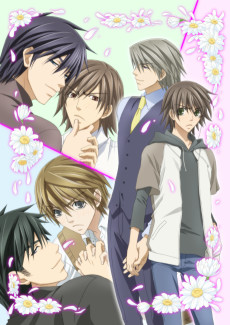 ANIME ComedyJunjou Romantica
ANIME ComedyJunjou Romantica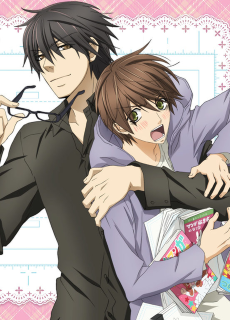 ANIME ComedySekaiichi Hatsukoi
ANIME ComedySekaiichi Hatsukoi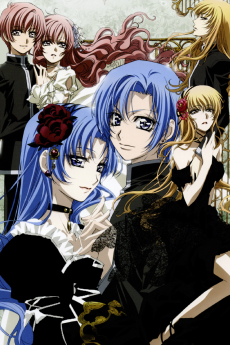 ANIME ComedyPrincess Princess
ANIME ComedyPrincess Princess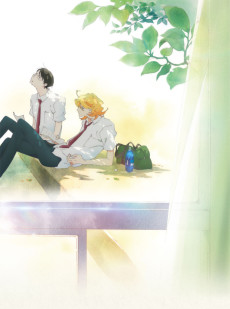 MOVIE DramaDoukyuusei
MOVIE DramaDoukyuusei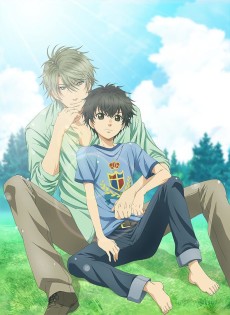 ANIME ComedySuper Lovers
ANIME ComedySuper Lovers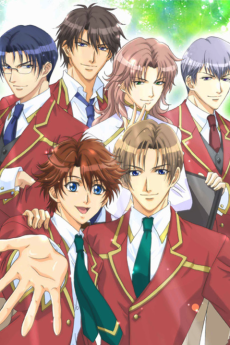 ANIME ComedyGakuen Heaven
ANIME ComedyGakuen Heaven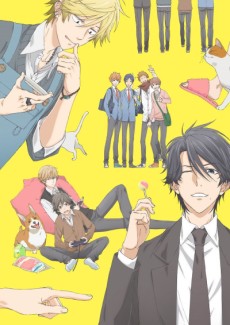 ANIME RomanceHitorijime My Hero
ANIME RomanceHitorijime My Hero
SCORE
- (3.3/5)
TRAILER
MORE INFO
Ended inSeptember 11, 2014
Main Studio J.C.STAFF
Favorited by 621 Users
Hashtag #ラブステ


